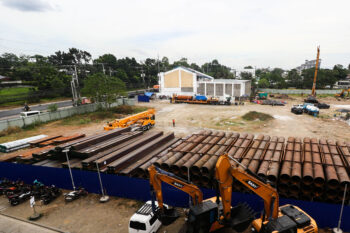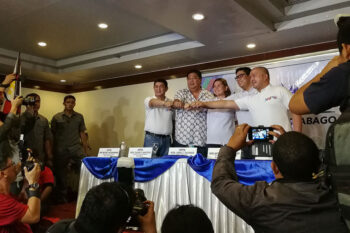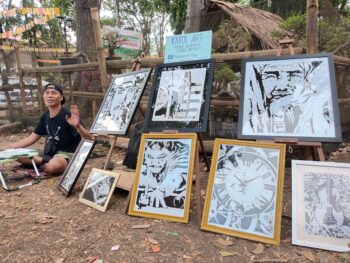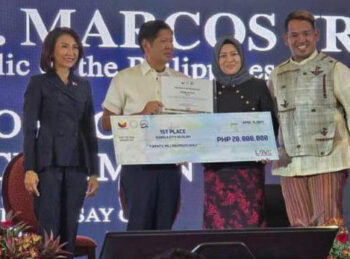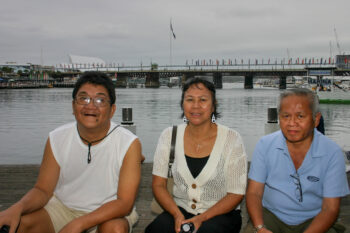ZAMBOANGA CITY (MindaNews / 22 July) — This paper emerged from my personal experiences and engagements in the communities of Maguindanao when I was working as a UN Volunteer for the Government of the Philippines – United Nations Multi Donor Programme from 1998 – 2003, followed by my active involvement in organizing civil society organizations for peace building in the said province for the past ten years. Also included in this discussion are my academic studies as a student of anthropology since 2011. Thus, the main focus of my presentation this afternoon is to share with you a glimpse of CSO Engagement: Maguindanao Perspective. I will try to put inside a box those years of experiences, and one by one discuss them with you in less than 15mins.
Let me begin by sharing my bias. I am a Muslim. I am an Iranun, from the lineage of Shariff Kabunsuan, 28th generation of the Maguindanao Sultanates, a Mindanawon, and a Filipino citizen of this republic. These define my identity and the roots of the history of my people. Having said that, let me briefly discuss the flow of my presentation:
What is civil society?
‘Civil society’ resists easy definition, especially when discussing it as a global development. Every society has its own distinct forms of social organization, cultural and political traditions, as well as contemporary state and economic structures – all of which are central to the development of civil society and shape its specific features. Most broadly understood, however, civil society refers to the web of social relations that exist in the space between the state, the market (activities with the aim of extracting profit), and the private life of families and individuals. Interlinked with the concept of ‘civil society’ is the idea of social capital: the values, traditions and networks that enable coordination and cooperation between people. Civil society therefore involves qualities associated with relationships, with values, and with organizational forms. (Catherine Barnes, European Centre for Conflict Prevention, 2006)
From this definition, you may ask, what then is its relationship in Maguindanao?
Our civil society experienced evolved at two layers: socio political and socio cultural experiences.
Let us look at the socio – political landscape of Maguindanao. Based on our studies, we have at least five major power players in most of our communities. These power players are: a. Local datu / traditional leader – those with strong tarsal that traces back prior to the advent of Islam. b. LGU official / barangay or municipal – those who uses all means to win an election; c. Religious leaders / Ulama, imam in the community – those with educational background mostly from Middle East; d. Moro dissidents, commanders / armed groups – the evolution of Blackshirts, Barracudas, which eventually became the MNLF, MILF, and BIFF; e. former LGUs, defeated political leaders; f. at some point, the CSO network – who has access to foreign funding.
These power players have found their way of benefiting from the conflict in Maguindanao. The conflict became a smoke screen that hides the shadow economy (narco politics, gun trade, gruesomeness of graft and corruption). But these power players, if properly channeled, can be an agent for peace and development!
Let us focus on the datu or the traditional leader and relate this with the Bangsamoro narrative.
The academe, non-government organizations (NGOs), and civil society organizations play an important role in the understanding that the Bangsamoro people is not a monolithic group.Thus, the idea of looking at the different ethno-linguistic groupings as Islamized indigenous peoples is more appropriate.
Therefore, in understanding the Bangsomoro people, we need to look deeper and understand further how power play is happening on the ground.
Time to make a stand
Peace negotiations mostly involve the power players. Thus, instead of complaining we decided to organize ourselves. Enough is enough. We can not keep on complaining. We need to stand up and do something. We need to organize ourselves. Thus, we organized civil society organizations that are in tuned with our local context.
In 2001, we organized the Kadtabanga Peace and Development Advocates Foundation. This is composed of former MNLF combatants in Central Mindanao. I am happy to say that this CSO/NGO is an active partner of our government in terms of peace building activities.
In 2007, we organized Aksyon Mindanaw, a conglomeration of CSO, PO, and NGOs working for peace and development. Then we helped in the election reform watchdog, Task Force Kalilintad last 2010 elections.
And finally, in 2011 through the Ateneo de Davao University, we set up Al Qalam Institute as an inter religious / intra religious dialogue through action research.
From these experiences, the following are our learnings:
First, we need to ask ourselves, “Why should civil society be involved in working with conflict transformation?” In Maguindanao, the history of violence and conflict compels each and every one of us to act. In every military encounter with the MILF, it is the civilians who suffer a lot. Several IDPs are affected when violent conflict and military encounters are happening on the ground.
In answering this question, we have come up with the following reflections:
- People can be agents of human security, not merely passive recipients. We educate our
people in understanding that there has to be no “security monopoly.” The power players have to dialogue and understand the essence of peace and human security in their area. The government and military cannot be the main source of security of the communities.
- Agents for change: key functions of civil society peacebuilding. These power players must become agents for change. However, we invested more on their children or the successor generations through peace camps, trainings, exposures and direct engagements.
- Engaging the power players through dialogue. Minimizing the collateral damage of ‘rido’ and ensuring the rule of law to prevail.
- Paradigm shifts: the power to re-frame and change perceptions. Here, we organized the peace and development advocates. Changing paradigms from arms to farms. “The experience of encountering those who have been regarded as enemies and perceiving them as human beings can shake perceptions of ‘the other’ and challenge the discourses of hate. This can shake-up their perceptions of the conflict and ultimately result in personal transformation. They – and those in the circles around them – may begin to seek alternatives to continued war because they now know that there are people in the other community who are similar to themselves in seeking a reasonable solution to the conflict.”
- Envisioning a better future (power to identify, to analyze and to propose). Civil society actors can help shape peace policy by identifying overlooked problems and policy gaps, analyzing issues and recommending solutions. In short, they can identify the central agenda of issues that need to be addressed in responding to a conflict situation and dealing with peace and security issues more widely. Civil society groups can analyze the situation, formulate recommendations, develop policy options and engage in policy dialogue to address conflicts. They can also mobilize advocacy campaigns to generate political will amongst decision-makers and implement strategies to achieve the desired results. Thus civil society efforts at raising public awareness about a particular set of problems is intertwined with efforts to motivate political decision-makers to take action to address them.
- Organizing peace advocates: generating support and applying pressure. Those involved in armed conflict often justify their actions on the basis of their authority as governments or by claiming to represent popular causes. Civil society actors may challenge these assertions by demonstrating that public opinion rejects military approaches and supports alternatives.
- Creating a peaceful environment through Peace and Development Communities: It is basic in our understanding that its is very difficult for people to engage in and support peacemaking when communities’ basic security is threatened. Thus, we encourage the creation of peace and development communities where the people put pressure on the power players to declare their community as a PDC or a peace zone. In the process, we have localized peace agreements. Take the case of the 2008 failure of MOA-AD (Memorandum of Agreement on Ancestral Domain). In most areas in Central Mindanao, conflict erupted. But in the PDCs, Iranun areas and multi people communities, there was no armed conflict.
In conclusion, we have four direct points
a. CSOs have direct access to the communities. They can mobilize people from the grassroots for the common good. They can become active partners for peace building.
b. CSOs are partners for peace and development. They represent the people from the community.
c. CSOs must work with other stakeholders in the community. Engagement with the academe can help in preparing community profile, baseline surveys, and program management.
d. CSOs must be recognized by the STATE. Take the case of the Peace and Development Task Force that we set up in UNMDP. A peace program of the community was institutionalized beyond the term of office of the LGUs.
We do believe that localizing peace agreements at the community level is crucial. As the MILF and GPH Panels finalize the draft Bangsamoro Basic Law, we urge our communities to persevere and set up mechanisms to recognize the diversities of our people in working for peace and development.
(MindaViews is the opinion section of MindaNews. Mussolini Sinsuat Lidasan, Executive Director of the Al Qalam Institute, delivered this piece last July 22, 2014 for the Ateneo de Zamboanga University Peace Convocation entitled, Weaving the Tapestry for Peace: A Forum on the Comprehensive Agreement on the Bangsamoro, Orchid Ballroom, Garden Orchid Hotel, Gov. Camins Avenue. Zamboanga City)

